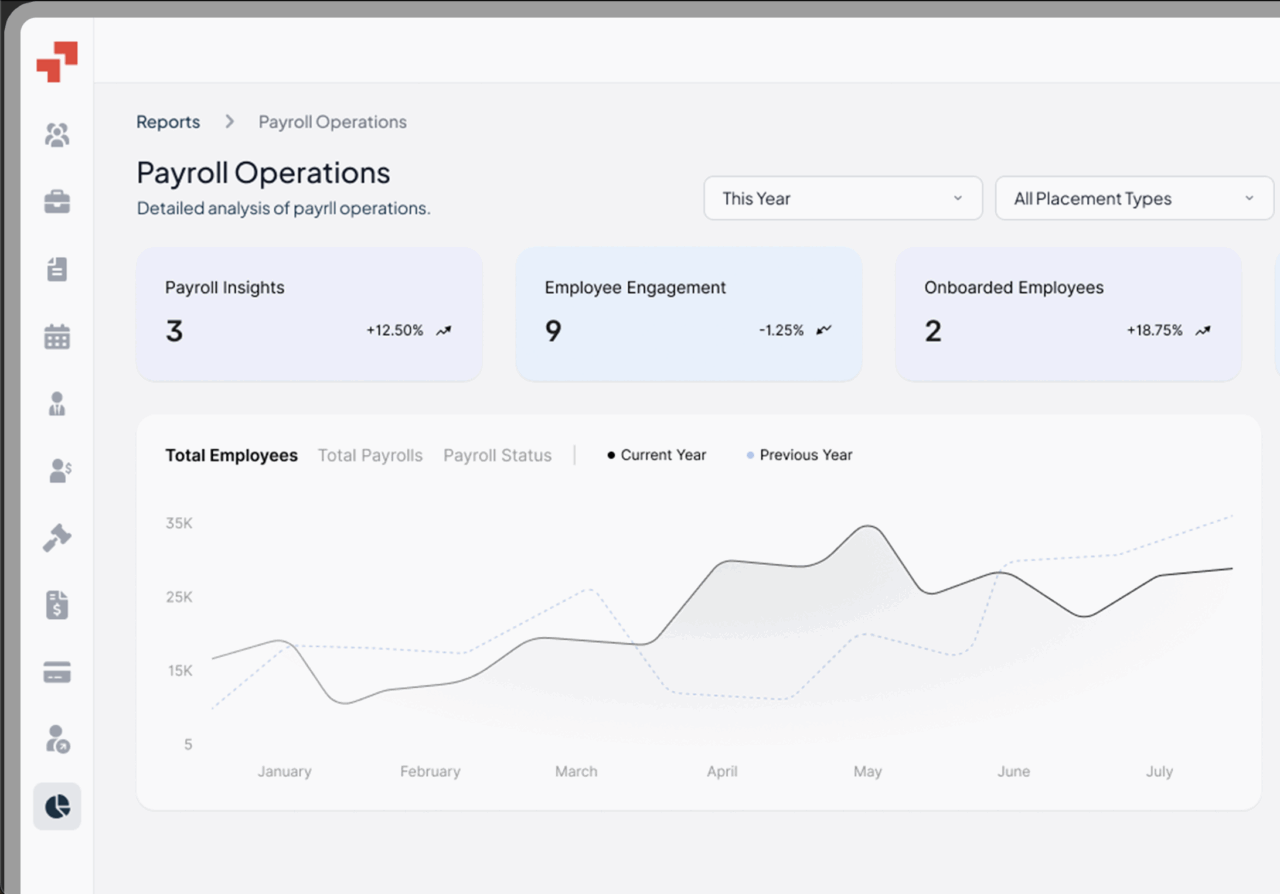Equity Incentive Plan
In today’s global talent market, compensation strategies, including equity compensation, go far beyond paychecks. Forward-thinking companies are embracing equity-based rewards to attract, motivate, and retain top talent across borders. By allowing employee equity to help employees share in a company’s growth through stock appreciation rights , equity incentive plans align personal success with organizational performance.
However, offering equity across multiple countries introduces challenges in taxation, compliance, and administration under practical law . Understanding how these plans work—and how to manage them effectively—is key to building a truly global, ownership-driven workforce.
Table of Contents
- What is co-employment?
- What are co-employment laws?
- Why is co-employment a risk?
- What are co-employment rules
- Co-employment do’s and don’ts
- How does co-employment work?
- What is the difference between co-employment and joint employment?
- Co-employment vs PEO
- Co-employment vs employee leasing
- Is co-op considered a full-time employee?
- Is it illegal to work for two jobs in the same industry?
- Co-employment examples
- Practical Case Study Example
- PamGro and Co-employment: Your Global Partner
What is an Equity Incentive Plan?
An equity incentive plan is a compensation program that gives employees ownership in the company, usually through stock options, restricted stock units (RSUs), or performance-based shares.
Stock Options provide employees the opportunity to purchase company stock at a fixed price. Restricted Stock Units (RSUs) are commitments to grant a specific number of shares or the cash equivalent to employees at a future date.
Performance Shares and Units (PSUs) are awards contingent on meeting specified performance objectives over a multi-year period. They’re especially popular with companies seeking startups and high-growth organizations that aim to conserve cash while rewarding key talent.
How Does an Equity Incentive Plan Work?
Equity incentive plans work through a grant and vesting process, where employees earn ownership over time or after meeting performance goals. Vesting schedules encourage retention and align employees with company growth while helping reduce turnover. Once vested, employees can exercise stock options or receive shares directly, though this may dilute ownership for existing shareholders.
As participation grows, companies often use third-party stock plan administrators to manage complexity efficiently. For global teams, partnering with an Employer of Record (EOR) like PamGro helps ensure equity awards comply with international tax, payroll, and labor laws.
What is a Non-Equity Incentive Plan?
A non-equity incentive plan rewards employees through performance-based cash bonuses or profit-sharing instead of ownership. These programs motivate short-term achievements and are easier to administer, but tax implications don’t create long-term alignment with company success.
Most organizations use a combination of equity and non-equity incentives to balance liquidity and retention. The U.S. Department of Labor offers guidance on compensation structures, ensuring companies remain compliant with wage and performance regulations.
What is the Difference Between ESOP and Equity Incentive Plan?
An Employee Stock Ownership Plan (ESOP) is a retirement plan where employees receive shares or a restricted stock award as part of their benefits. It’s focused on long-term wealth building and employee ownership. Section 409A applies to deferred compensation and must be considered when drafting equity incentive plans to ensure compliance.
An equity incentive plan, on the other hand, rewards performance and retention through incentive stock options or RSUs tied to company success. There are two primary types of stock options: Incentive Stock Options (ISOs) and Non-Qualified Stock Options (NQSOs). Incentive Stock Options (ISOs) have certain tax advantages for employees, provided certain rules are followed. While ESOPs suit domestic companies with stable structures, equity incentive plans offer more flexibility—particularly useful for startups and businesses with global or hybrid workforces.
What are the Three Types of Incentive Plans?
Incentive plans generally fall into three categories, including stock option plans :
- Equity Incentive Plans – Offer ownership through company shares or options.
- Non-Equity Incentive Plans – Provide cash rewards tied to performance.
- Hybrid Incentive Plans – Combine equity and cash-based rewards for balanced motivation.
Hybrid models are increasingly common for multinational teams, allowing organizations to customize rewards based on local tax laws and employment frameworks. PamGro supports this flexibility by managing diverse compensation models and providing standard documents under one global compliance system.
Can an LLC Have an Equity Incentive Plan?
Yes. LLCs (Limited Liability Companies) can implement equity incentive plans by offering membership units or profits interests instead of traditional stock. Profits interests grant employees a share of future company growth without immediate tax liabilities.
These arrangements can be highly effective for private or early-stage businesses but require careful documentation. For employees of a private company, shares are not easy to convert into cash and may involve selling restrictions. Private companies face challenges offering liquidity and equity compensation compared to public companies due to limited trading options for their stock. For LLCs with international members, working with a global compliance partner ensures that every grant meets both local and international legal standards.
Implementation and Management of Equity Incentive Plans
Effective implementation starts with defining clear goals—whether to attract talent, retain top performers, or align executive compensation with growth. Determining the best equity incentive plan requires consideration of various factors including company goals and structure. The approval process for an equity incentive plan requires approval by the company’s board of directors and by the company’s shareholders. Once the plan is approved, a company must register the shares grantable under the plan, often on a Form S-8.
An equity incentive plan needs to be drafted to be as flexible as possible, providing maximum flexibility to avoid needing to go back to shareholders later for approval to add new LTI vehicles. Companies must then establish eligibility, grant types, vesting schedules, and performance conditions. However, having both income and a significant portion of financial assets tied to a single company’s stock is risky, as failure can lead to simultaneous job loss and savings loss.
Once launched, consistent compliance, reporting, and communication are essential. Every country has unique tax and securities laws affecting equity grants. Securities laws require disclosure of grants made under equity incentive plans and necessitate filing a registration statement for company shares issued under such plans. Public companies must comply with their listing exchange’s rules regarding equity compensation plans, necessitating shareholder approval for such plans. Equity incentive plans must also address clawback provisions per the Dodd-Frank Act requirements as adopted by listing exchanges.
How to Offer Equity Incentive Plans to Global Teams
Extending equity to international employees requires navigating local tax codes, securities laws, and labor regulations. Some countries tax at grant, others at vesting or sale, while a few restrict foreign stock ownership altogether.
By partnering with a global Employer of Record (EOR) such as PamGro, companies can legally employ international talent and extend equity benefits without setting up local entities. PamGro ensures compliance with local regulations while delivering consistent, equitable compensation experiences across all markets.
Benefits of Offering Equity Incentive Plans to Employees
Equity incentives foster commitment, ownership, and a shared sense of purpose. Employees who hold a stake in the company stock’s success are more engaged and motivated to drive results. However, employees may focus on short-term gains to realize immediate value, potentially at the expense of the company’s long-term health. Additionally, incentives tied to performance can sometimes encourage employees to cut corners or engage in unethical behavior to achieve targets, highlighting the need for careful plan design and oversight.
Equity-based compensation is also a strong recruitment tool—particularly for startups competing with larger firms. Many job candidates actively seek employment opportunities that offer equity incentives. A study shows that companies using well-structured equity incentives outperform peers in long-term value creation, highlighting how ownership can transform organizational culture.
The Role of Equity Incentive Plans in Modern Business
In a world where remote and distributed teams are the norm, equity incentive plans help unify employees under a shared vision. They build trust, collaboration, and a sense of partnership across locations and cultures, especially under special circumstances . Making employees feel like partners can boost morale and lead to greater job satisfaction.
Equity-based rewards also enhance employer branding, signaling that the organization values long-term contribution. With PamGro’s support, public companies and businesses can integrate equity incentives seamlessly into their global HR and payroll infrastructure—ensuring compliance and consistency as they grow across new markets.
Equity Incentive Plans in Different Stages of a Company’s Life Cycle
For early-stage companies, equity plans attract top talent when cash is limited. During growth stages, they retain key employees and align performance with business milestones. At maturity, equity programs evolve to reward executives and sustain shareholder value.
As companies expand internationally, these plans must adapt to local regulations and taxation models. EOR services provide the legal and operational foundation for scaling equity programs across new countries without the burden of setting up local entities
Equity Incentive Plan Example (Practical Case Study)
A U.S.-based SaaS company expanding into Europe and Asia wants to reward global team members with RSUs. However, differences in local tax rules, labor laws, and securities regulations make it challenging to manage.
By partnering with PamGro’s Employer of Record (EOR) solution, the company employs its global team compliantly and extends equity benefits under one system. PamGro manages local employment contracts, reporting, and tax requirements, ensuring a seamless experience for all employees.
The result: a unified global workforce motivated by ownership and aligned with company success—without compliance risks or administrative complexity.
How PamGro Simplifies Global Equity Management
Designing and managing global equity programs is complex—but it doesn’t have to be. PamGro helps businesses extend equity incentive plans to employees in multiple countries through its Employer of Record (EOR) and Global HR solutions, demonstrating how practical law resources can facilitate this proces .
With PamGro, companies can:
- Hire international talent without establishing local entities
- Manage payroll, benefits, and equity plans from a single platform
- Ensure compliance with international tax and labor laws
- Deliver consistent employee experiences across global teams
Build an ownership-driven culture. Empower your global workforce with PamGro’s EOR expertise and simplify international expansion.
Hire the Best Talent, Anywhere






